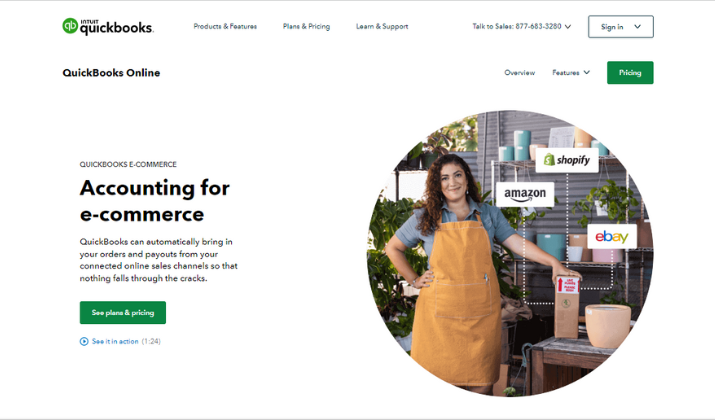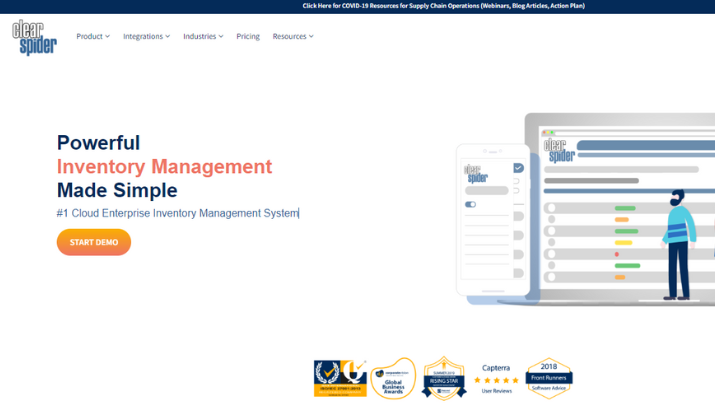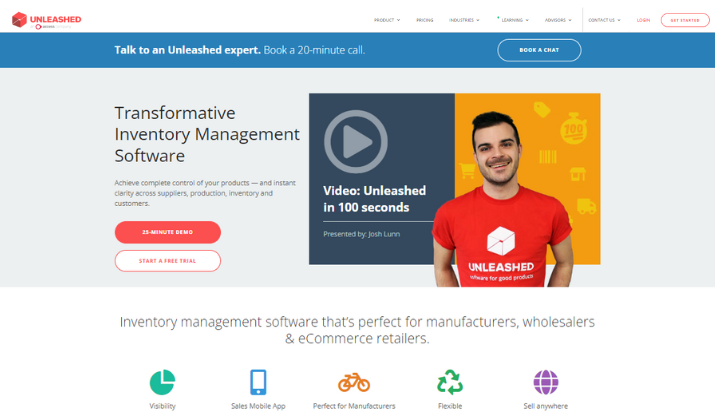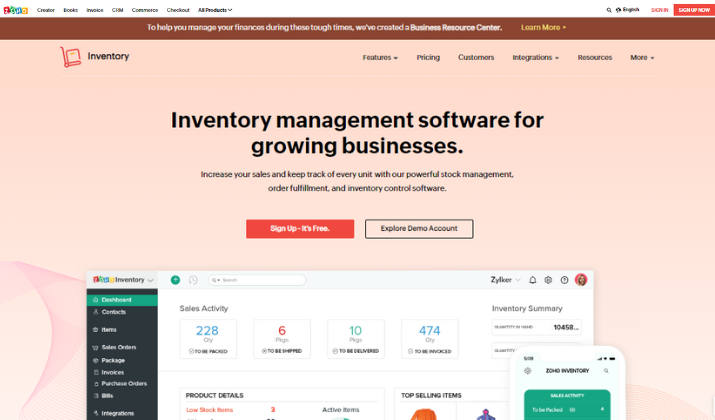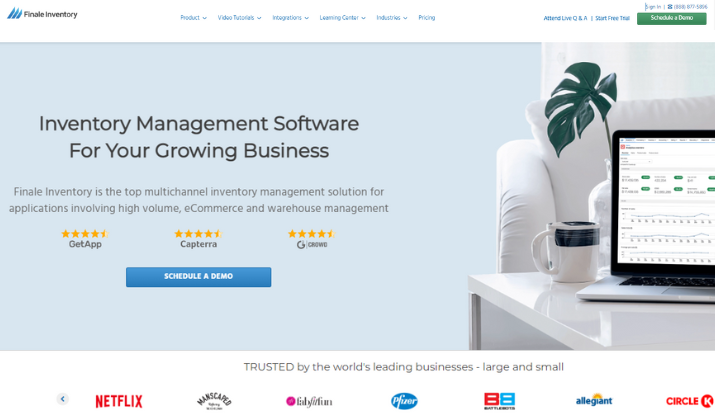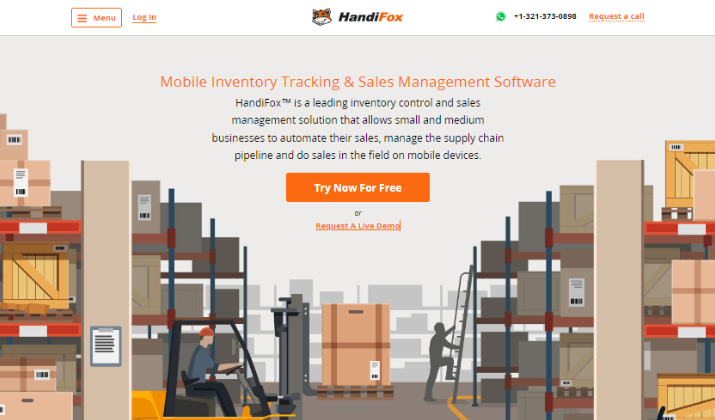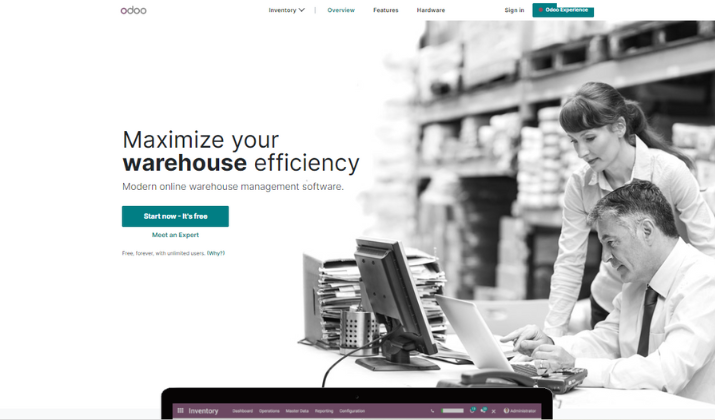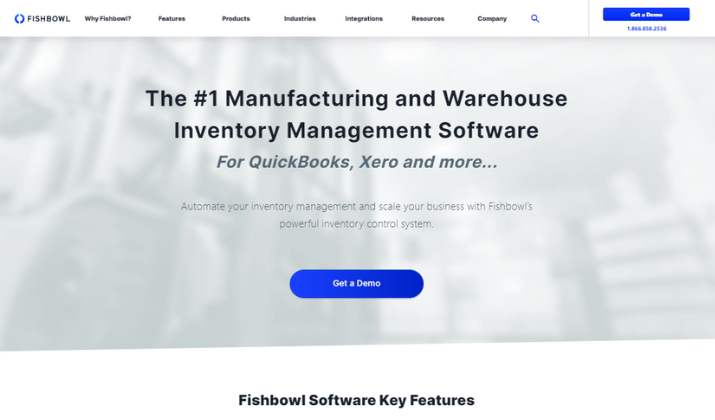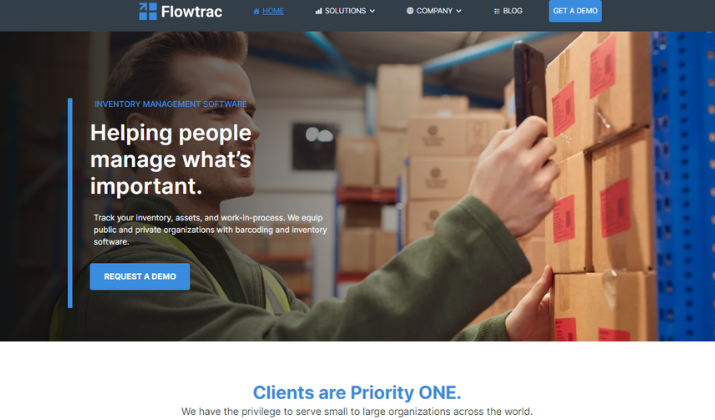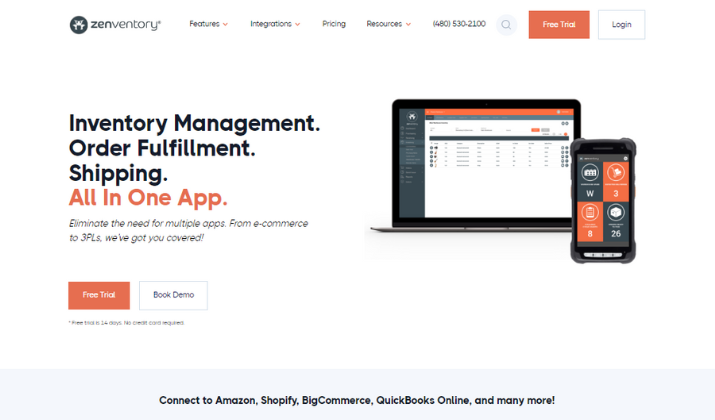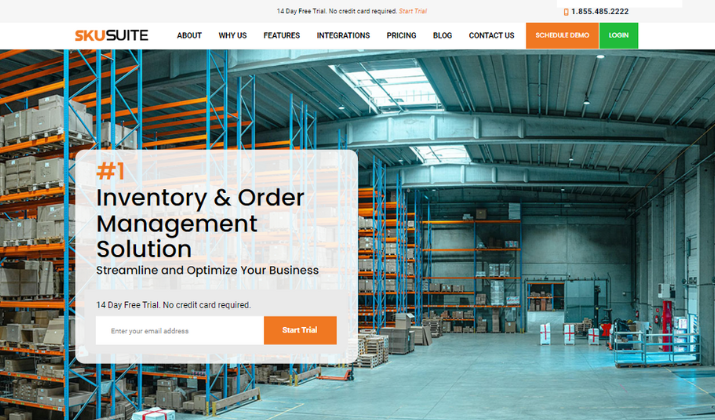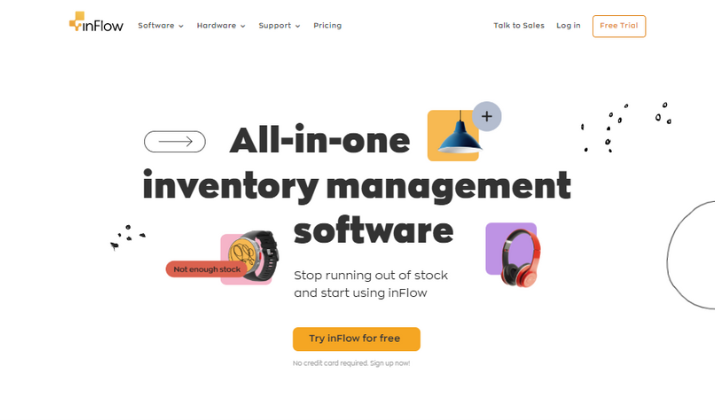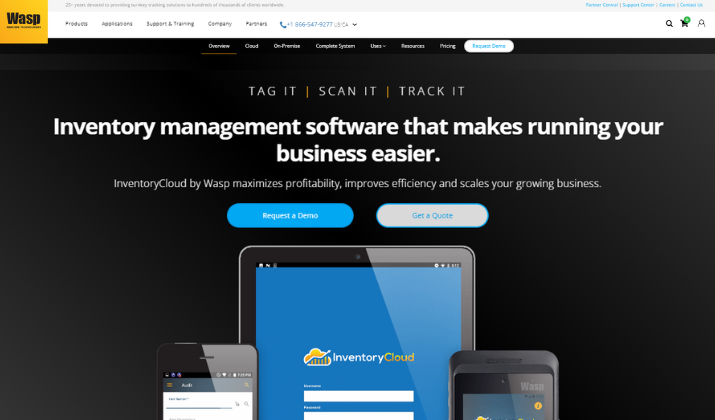Sortly is a cloud-based inventory management solution for small businesses and has grown in popularity at an incredible pace since its founding in 2012.
The app helps you track the stock levels of your products, as well as their pricing and availability. You can also use it to run reports on how well your items are doing and what you need to do to improve them.
But it’s not without its drawbacks.
For example, the user interface is overly complicated. It takes a lot of time and effort to learn how to use it, which can be especially frustrating for small business owners who don’t have time to spare on training.
Besides, Sortly’s customer support is not responsive. If you have an issue with the platform and want to get in touch with the team, you can expect it to take a while for someone to reach out to you.
And while it does offer a free version, it’s pretty limited in what it can do. You can’t generate QR codes for labels and there’s only one custom field to add to your inventory management system.
Luckily, there are plenty of inventory management solutions out there that have some of the same features but also include additional benefits that could help make your life easier.
Here are the best Sortly alternatives currently in the market:
Best Sortly Alternatives
1. QuickBooks Commerce
QuickBooks Commerce is a great substitute for Sortly. It integrates inventory data with a variety of channels and websites (including Amazon, eBay, Walmart, and more), making it easy to manage multiple warehouses, stores, and other locations from one dashboard.
It takes less than five minutes to set up the platform, and once you’ve done that, you can start adding products and tracking them as they move through your supply chain.
Like Sortly, it comes with tons of reporting tools so that you can analyze trends in your business, and a bunch of other analytics features that help you keep track of your stock levels and reduce errors when you’re ordering or restocking inventory.
Furthermore, QuickBooks Commerce features powerful collaboration and automation tools, including inventory management capabilities that allow employees to work on the inventory process without having to log into separate systems, and email marketing automation tools that let you offer targeted discounts or promotions to customers based on their past behavior.
You can even create invoices, estimates, purchase orders, credit memos, and sales receipts. The best thing about this is that the software’s features are all included in one package. You don’t have to pay for third-party integrations that might not be as good as the ones already built into the system.
Also Read: Best QuickBooks Alternatives
2. Clear Spider
Clear Spider is another fantastic choice.
For one thing, Clear Spider integrates with your customer relationship management (CRM) software to help you keep track of customers and their orders in one place. It also integrates with your enterprise resource planning (ERP) software so you can see everything about your business from one place.
Unlike Sortly, it connects directly to your point-of-sale (POS) system. This way, you can quickly add items to inventory and monitor sales without having to leave the POS app.
In addition, Clear Spider lets you track your consignment stock at customer locations, so if a customer requests a product and it’s not on hand, you can let them know just how long it’ll take for the item to arrive.
On top of that, the software makes it easy to authorize material returns, create custom reports for your suppliers or customers, and even customize your own dashboard. All of these features are a big help when you need to stay on top of things in your warehouse or store.
3. Unleashed
Unleashed is another great alternative to Sortly. It has many of the same features, but it’s more affordable and includes more comprehensive reporting tools.
One of the things that make Unleashed a solid choice for inventory management is that it offers an easy-to-use interface that lets you set up an entire system in less than five minutes. This can be especially helpful if you’re new to this kind of software or just aren’t familiar with how it works.
Besides, you’ll always know exactly what you have in stock, so there will be no surprises when it comes time for an order or sale. Unlike Sortly, Unleashed’s software is designed so that any mistakes are easy to fix quickly and accurately, without having to redo all of your work.
Furthermore, the app allows you to create custom categories, which means that instead of just having one like “shoes” or “clothing,” you can break things down into smaller groups like “sneakers” or “pants.”
Then, when you receive new shipments of these products, you can assign them to those categories and they’ll be automatically sorted and organized in the right place. This helps you keep better track of your inventory and find things faster when they go missing.
Also Read: RestockPro vs Forecastly
4. Zoho Inventory
Zoho Inventory is an excellent substitute for Sortly.
When comparing both platforms side-by-side, you’ll notice several similar features: both allow users to create reports on their sales figures and order history, they offer an easy way to keep track of inventory, and allow you to find new products through their search feature.
But there are some notable differences between them as well. Sortly, for instance, only lets you search through your products by keyword, while Zoho Inventory lets you browse by category or keyword, which makes tracking your items faster.
Now, the most notable feature of Zoho Inventory is its ability to integrate with other third-party apps like Shopify and FedEx.
This makes managing your orders easier by allowing you to see what’s coming in and out of your warehouse at any given time, and where each product is going after it leaves your warehouse, so you can make sure it reaches the correct customer.
Additionally, Zoho Inventory has a tool called “Smart Alerts” that lets you know when an item or product price needs to be updated. This helps prevent mistakes and ensures that customers are always getting accurate information about what they’re buying.
Explore: Best Business Software Examples
5. Finale Inventory
Like Sortly, Finale Inventory is an inventory management software that lets you track your products, organize them into different categories, and check their prices. It also has features that allow you to see which products are selling well and which ones aren’t selling at all.
However, the difference between these two platforms is that the Finale Inventory app allows you to add unlimited custom fields for each product so you can track more information about it than just its name, description, price, and quantity on hand.
Furthermore, you can use the software to create barcodes for your products, which you can then scan at the time of purchase.
And if you have multiple warehouses, shippers, or distributors that need to receive orders from customers, you can easily send them to different locations with just a few clicks.
But that’s not all: its shipping management tools enable you to track the status of each order and see if it has been delivered or not. Plus, you can set up multiple users with different roles so that everyone gets access only to the information they need for their work.
Finally, since Finale Inventory is designed for smaller businesses, it also offers a responsive support team. The team can answer questions quickly and effectively if you need help with setup or learning how to use the product.
Also Read: Best ERP Software Examples
6. SkuVault
SkuVault is another great option and it works just like Sortly. It’s an app you can access from anywhere at any time, and it allows you to create an inventory system that works for your business.
You can use it to scan and monitor products, create a shopping list and sync it with other devices, and share the inventory with your employees and departments. But SkuVault has some additional features that make it more useful for small businesses than Sortly.
For example, the platform allows you to track inventory and sales reports by product category or by individual product. This means that if your business sells books and magazines alongside other items like DVDs, CDs, toys, and games – or if you want to break down your inventory into categories like “sporting goods” or “home decor” – you can do so easily without having to go through each individual product.
You can also set up alerts that will let you know when stock levels run low, which is helpful to avoid surprises when customers come in looking for something specific.
Additionally, SkuVault has built-in barcode scanning functionality so you don’t have to buy any extra hardware or software for this purpose.
Also Read: Best Open-source Zendesk Alternatives
7. HandiFox
HandiFox is another great choice. HandiFox’s main feature is its ability to import data from other systems, which means you can sync your inventory with any database you have in place.
This is particularly useful for small businesses that have already invested in a point-of-sale (POS) system or another type of inventory management software and want to integrate it with their new HandiFox account.
But what makes this app better than Sortly? For starters, HandiFox offers many more ways for you to keep track of your inventory. You can catalog every single product in your store using barcode scanning technology, or manually enter products one at a time if you’re not ready to invest in the scanning system yet.
The platform also includes an auto-categorization feature that helps you classify your items quickly and easily so they can be found by customers who search for specific keywords or product types.
Plus, with HandiFox’s customizable reports and graphs, there are tons of ways for you to analyze how well your products are selling and make sure that everything is running smoothly in your store.
Explore: Best CRM Software Examples
8. Odoo
Odoo is an inventory management software that can do everything from tracking sales and customer information to keeping up with orders, shipments, and even analytics. It also helps you stay on top of your vendor relationships and manage your warehouse – all in one place.
It’s been around since 2005, so it’s definitely a tried-and-true solution. Plus, it has many of the same features as Sortly, including the ability to monitor inventory, create sales reports and invoices, and manage contacts.
However, the software also offers features that are not available with Sortly, including POS functionality and multi-currency support.
Another great thing about Odoo is that it’s open source. This means that the code for the program is available for anyone to review and contribute to, so you know that there are no hidden agendas or backdoors in the system.
It also has powerful integration options. You can integrate your Odoo inventory management account with Salesforce, QuickBooks, Google Sheets, Trello, Slack – the list goes on!
You can even connect your Odoo inventory management software with messaging apps if you’d rather reach out to customers via those channels.
9. Fishbowl Inventory
Fishbowl Inventory is a cloud-based platform that lets you track your inventory across multiple locations. It has all the basic functionality you’d expect from a solid inventory management system: You can set up different types of products and categories, set pricing for each product, and track sales.
But Fishbowl also has some cool extra features that Sortly doesn’t have.
For example, each time you enter a new product into the system, it will automatically assign an SKU number. This makes it easy for you and your employees to find items quickly.
In addition, the software comes with a feature called “Quick Fulfill,” which helps you restock products automatically. It works great at saving you time and money by preventing over-ordering items that aren’t selling well or need replenishing sooner than expected.
Plus, Fishbowl has a lot more integrations than Sortly does. It works with over 12 different apps and services like Salesforce, Shopify, QuickBooks, and more.
Explore: Best Drift Alternatives
10. Flowtrac
Flowtrac is a platform that helps you track and manage all your materials, assets, and items. It can be used by businesses of any size, from small companies to large corporations with multiple warehouses and distribution centers.
The first thing you’ll notice about Flowtrac is how easy it is to use compared to Sortly. It has a really clean user interface, and its dashboard layout is simple and intuitive, so you’ll be able to find what you need without any trouble at all.
Another reason to choose Flowtrac over Sortly is that it can be used on Android and iOS devices, as well as RFID technology to read and track where your products are in real time.
On top of that, it stores data locally on the device when you’re offline, so your inventory management software stays up-to-date even when you’re disconnected from the internet. This makes it easy for you to see what stock is available at all times, even if you’re on the road.
Also Read: Best QuickBase Alternatives
11. Zenventory
Zenventory is another cloud-based software that helps you track your inventory and supplies in real-time.
It’s easy to use, and like Sortly, it has a ton of features that will help you get the job done, like invoicing tools that allow you to create customized invoices based on the products that are being sold or bought.
One of the best things about Zenventory is its ability to connect with hundreds of other apps through its API. This means you can integrate it with all sorts of other programs and services, letting you do everything from creating custom reports to automating tasks and processes.
On top of that, unlike Sortly, it’s possible to sync Zenventory with Amazon Seller Central so that all of your product information automatically updates when changes are made either through Amazon or Zenventory itself (which means no more manual updating).
12. SkuSuite
SkuSuite is a faster and more reliable option for inventory management. The software is designed to be as easy to use as possible, with intuitive icons and menus that you’ll know how to use right away.
Like Sortly, it offers a 14-day trial, but once it ends you can get unlimited inventory and unlimited products for a much more affordable price.
SkuSuite also provides over 30 integrations with the most common shipping carriers and eCommerce platforms, such as FedEx, United States Postal Service (USPS), Walmart, eBay, and others. With this kind of flexibility with integrations, you can really customize your solution to fit your needs perfectly.
13. inFlow Inventory
inFlow Inventory is another excellent option to consider for Sortly.
One of the best things about the platform is its ability to help you define reorder points that take into account seasonal demand and other factors that affect how quickly products will sell out (like popularity) – which you won’t find on Sortly.
This feature helps ensure that you’ll always have enough stock available when customers want it most.
Another great thing about inFlow Inventory is its automatic notifications system. When items get low or out of stock, they’ll send an alert letting you know what needs attention, so that nothing slips through the cracks.
And even though just like Sortly, it offers a 14-day trial, inFlow Inventory’s basic pricing plan comes with more valuable features, such as two user licenses, unlimited support, and two hours of setup assistance.
Explore: Best Dubsado Alternatives
14. LOCATE
LOCATE is a great substitute for Sortly. It has been designed with simplicity in mind. You can add products and categories, set up your pricing structure, and see how much inventory you have left at any time.
It’s all done through an intuitive interface that makes it easy for anyone to use – even if they’ve never used an app before.
When you sign up for LOCATE, you’ll get access to a dashboard where you can see all of your orders and inventory in one place. Similar to Sortly, you can create new orders from scratch or modify existing ones using this dashboard as well.
The app also allows you to set auto-replenishment options so that when your inventory runs low, it will automatically reorder more from your supplier (if applicable).
This feature will save you time by removing the need to constantly check your stock levels and make sure they are high enough before placing an order with your supplier or manufacturer.
Check Out: 17Hats vs HoneyBook
15. Wasp
Wasp is another fantastic alternative. It’s cloud-based (so it works on any device) and integrates with other popular programs like Shopify and QuickBooks.
Like Sortly, Wasp can help you keep track of your inventory with barcode scanners and printers. This way, you can scan every item as it comes in and out of your warehouse, and you’ll be able to keep better track of your inventory to make sure nothing gets lost or misplaced.
In addition, the platform allows you to monitor lot and date codes for each product you have on hand. So if a customer returns an item that has been recalled due to a defect, for example, you’ll be able to look up its code and know exactly which batch it came from.
That way you won’t accidentally sell another defective item.
Also Read: HoneyBook vs QuickBooks
Sum Up: What’s The Best Sortly Alternative?
The answer to this question depends ultimately on the needs of your business.
If you’re looking for a simple inventory management system that will help you keep track of your inventory, stay on top of your stock, and sell more, Unleashed is a great option.
It comes with all the features you’d expect from a top inventory management solution, it’s affordable and allows you to analyze your product data to make smarter decisions about your business with just a few clicks.
Now, if you’re looking for something that will help you manage multiple warehouses, sort out returns and exchanges, and provide outstanding customer service, then you might want to consider QuickBooks Commerce.
It can be configured with different levels of access, so you can give certain people more power over the system and others less. Plus, its comprehensive set of features integrates seamlessly with tons of shipping carriers, eCommerce platforms, and data management applications.
In summary, every alternative is good and worth trying.

